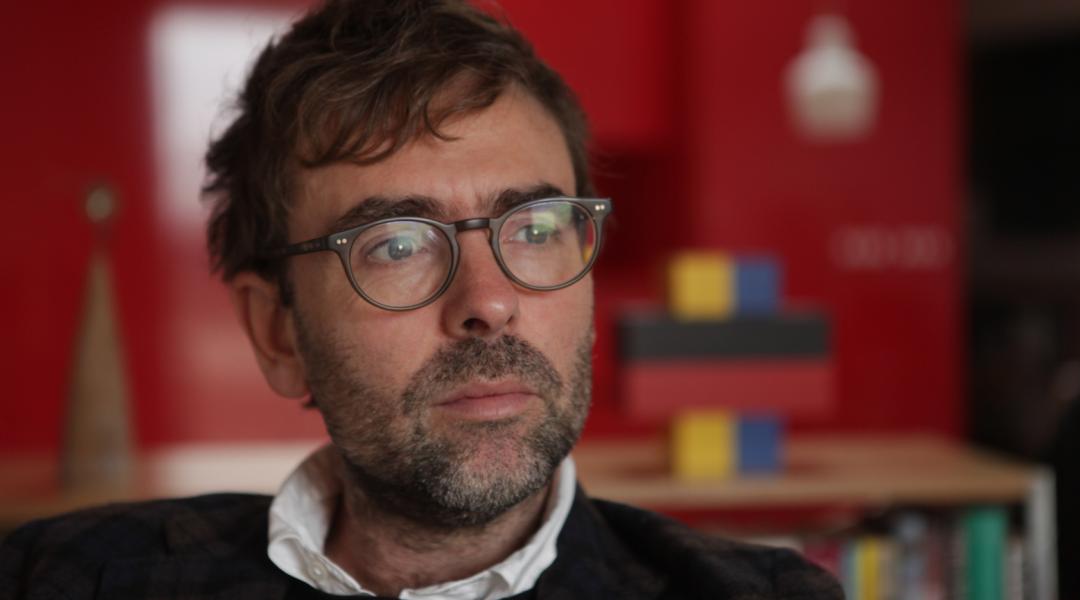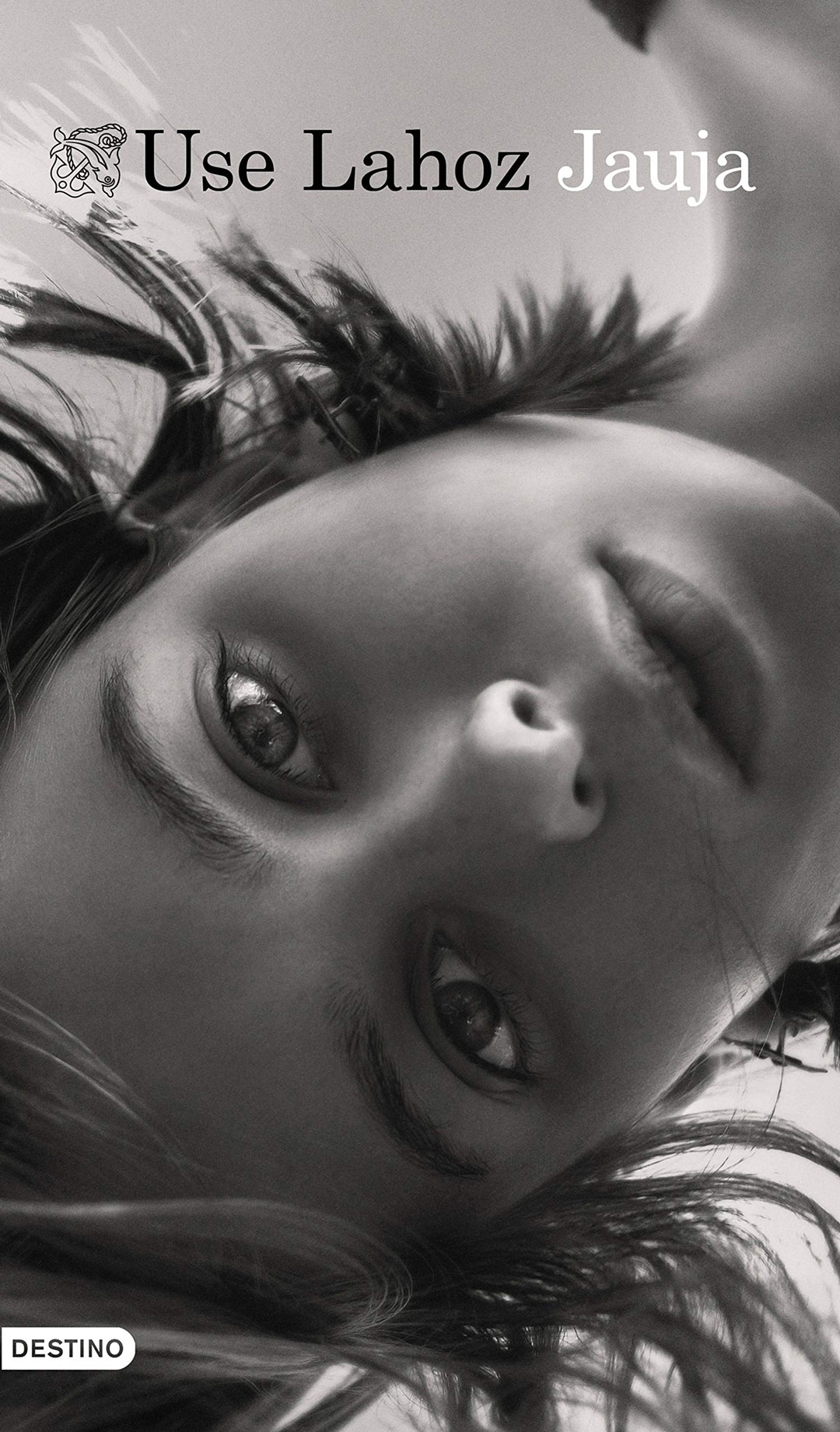Use Lahoz
The Written Memory

The author of the award-winning novels 'Los Baldrich' (FNAC Talent 2009), 'Los buenos amigos' (Premio Ojo Crítico 2012) and 'El año en que me enamoré de todas' (The Year I Fell in Love with Them All), a book that earned him the prestigious Premio Primavera de Novela 2013, returns to bookshops with a story about memory and forgiveness.
We meet at the Rafael Alberti bookshop, a temple of literature located in the Madrid district of Argüelles that every week organizes meetings with the finest Spanish contemporary writers. This time around the guest is writer and journalist Use Lahoz (Madrid, 1976), who is here to present Jauja (Editorial Destino), a novel that follows Maria, an actress who must face the demons of her past. He is accompanied by the great Almudena Grandes, the mistress of ceremonies in one of the literary events of the autumn. We took advantage of the meeting to talk with this Madrid-born, Barcelona-based writer about fiction, García Márquez and places that only exist in memory.
Would you say this is your most ambitious novel to date?
I don't know if it’s the most ambitious, but it is indeed the most daring in terms of structure, timelines and narrative voices, and also in terms of the theme and the approach, because, for example, the main character has died and is always evoked by others, something I’d never done before.
How did this story come about?
Novels start being written way before you write the first word. Just as I need to finish a novel in order to explain it, now that it’s out I see flashes, moments, and sensations that had been lingering in my unconscious for a long time. The first one is the image of actress Anna Lizaran at Teatre Lliure in Barcelona playing Liuba Andreievna in The Cherry Orchard, saying goodbye to her childhood, to her youth and, ultimately, to her life. I've never seen anybody saying goodbye like she does. Another flash comes from the novel The First Man by Camus, and from his chronicle Return to Tipasa, in which he evokes his childhood saying: “the sun that reigned over my childhood freed me from all resentment.” And another flash comes from my years in Uruguay and a story I was told about a family that lived on the run.

Cover of 'Jauja', by Use Lahoz © Editorial Destino
Memory is a recurrent theme in your novels. Do you understand memory as an antidote to deal with the past or to reconcile with it?
Along with constancy and imagination, memory is one of the weapons writers use to create, both in fiction and non-fiction. At a certain age, the past brings you unpredictable situations and many surprises. That’s what happens to María Broto, one of the characters in my novel, who, upon learning of his father's death, looks back into her past and discovers that she must reconcile with it in order to move on.
Is there anything of you in your characters?
There's always something. For example, Maria and I are the same age, we have similar musical tastes, she devotes herself to theatre and I devote myself to literature. But nothing that happens to her has ever happened to me. Chekhov, a great master, said that images generate thoughts, but thoughts don’t generate images. It would be difficult for me to talk about suffering, betrayal, love or failure if I had never experienced them.
It would be difficult for me to talk about suffering, betrayal, love or failure if I had never experienced them
One of the conclusions that Almudena Grandes has drawn from this novel is that, when we reach adulthood, we are more like our parents than we would ever care to admit.
Absolutely, there have been cases... That’s why we shouldn’t wait too much to reconcile and forgive, as it happens to María Broto. My novel talks about this -- about the immaterial inheritance we get from people who really loved us.
Like your previous books, this one is sold as non-fiction, miles away from autofiction, a ubiquitous genre in recent years.
One has to be very good to write about oneself. I love many non-fiction and autofiction books, such as Ordesa, Tiempo de vida and El olvido que seremos. However, I haven’t yet dared to write something like that, maybe because I haven’t experienced situations that fit into the genre, that’s why I trust fiction. I like to explain life through fiction and fictional characters. That said, the “I" is always present somehow. For example, García Márquez was the precursor of magical realism thanks partly to the hilarious stories his aunts told him, and he lived them as if they were true, becoming part of his literary truth. Fiction names and shapes reality, which is why it’s so necessary. Madame Bovary makes the France of her time real, and so does In Diamond Square with post-war Barcelona.
Like other authors, from Onetti to Sara Mesa and Nicolas Mathieu, you usually place your characters in fictional places, in the town of Valdecádiar in this case. If you had to locate it on the map of Spain, where would it be?
It would be in Teruel, in a remote and dry place. Valdecádiar is a combination of villages that I know. In my training as a writer, fiction and theatre have been equally important; in fact, everything related to culture and art. But also the summers I spent in a town in Teruel with my grandmother -- wonderful, endless childhood summers during which I encountered other ways of life, a different language, other ways of expressing love and friendship...
"Fiction shapes and names reality, which is why it’s so necessary"
Your job has taken you to France, Germany, Cuba, Uruguay, and Portugal. How does someone with such a cosmopolitan background set a story in a small village?
My hometown is my reference. I can’t talk about what I don’t know. It would be hard for me to set a novel in deep America’s motels without having been there. In this novel, however, one of my goals was to combine the actress’ cosmopolitan life during her mature years with her childhood in a small village and, at the same time, an intellectual and an ancestral way of life, the novel of ideas and the novel of adventures or the Bildungsroman.
Do you usually know the end before you sit down to write the first chapter or do the stories progress as you write?
Charles Simic said: “I left home to go to church and ended up at the dog track.” The same goes for me. I know where to start, but I don't know the end. I think art cannot be foreseen but modelled. I’m more into improvisation than into inspiration. I started writing a novel about an actress who has to return to the past to come to terms with it, and it ended up being an unhappy love story between a father and a daughter.
Besides being a writer, you teach at the Paris Université de Sciences Po. Juan José Millás said in your interview for Talento a bordo that “You can learn how to write, and everything that can be learned can be taught." Do you think putting in long hours is enough to become a good writer?
I believe perseverance is a good weapon. I’m a self-taught writer, you don’t get a degree in writing at university. That’s why it’s a fascinating craft one can take up at any age. You write with your head but also with the guts, so I’m not so sure it can be learned and taught so easily.



